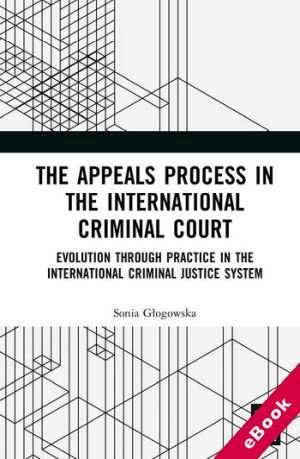We are now closed for the Christmas and New Year period, returning on Monday 5th January 2026. Orders placed during this time will be processed upon our return on 5th January.

The device(s) you use to access the eBook content must be authorized with an Adobe ID before you download the product otherwise it will fail to register correctly.
For further information see https://www.wildy.com/ebook-formats
Once the order is confirmed an automated e-mail will be sent to you to allow you to download the eBook.
All eBooks are supplied firm sale and cannot be returned. If you believe there is a fault with your eBook then contact us on ebooks@wildy.com and we will help in resolving the issue. This does not affect your statutory rights.
This book presents an analysis of the model of appellate procedure before the International Criminal Court, based on both the Court’s legal texts and case-law. While guiding the reader through the complexities of the Rome Statute, the Rules of Procedure and Evidence and the Regulations of the Court, the author underlines the role of judicial law-making powers in international trials. The study reflects on numerous legal and functional problems arising in the Appeal Chamber’s practice, including those that have yet to be addressed by the Court. The monograph proves that while the ICC legal texts are not clear about the general shape of appellate procedure before the ICC, especially the functions of the Appeals Chamber and objectives of appellate proceedings, the model of appellate procedure has been developed through the Appeals Chamber’s practice, sometimes contrary to the literal interpretation of the provisions of the Rome Statute and not in line with the expectations of the international community.
The book will be of interest to academics, researchers and policy-makers working in the areas of International Criminal Justice, International Human Rights Law and Criminal Law and Procedure.